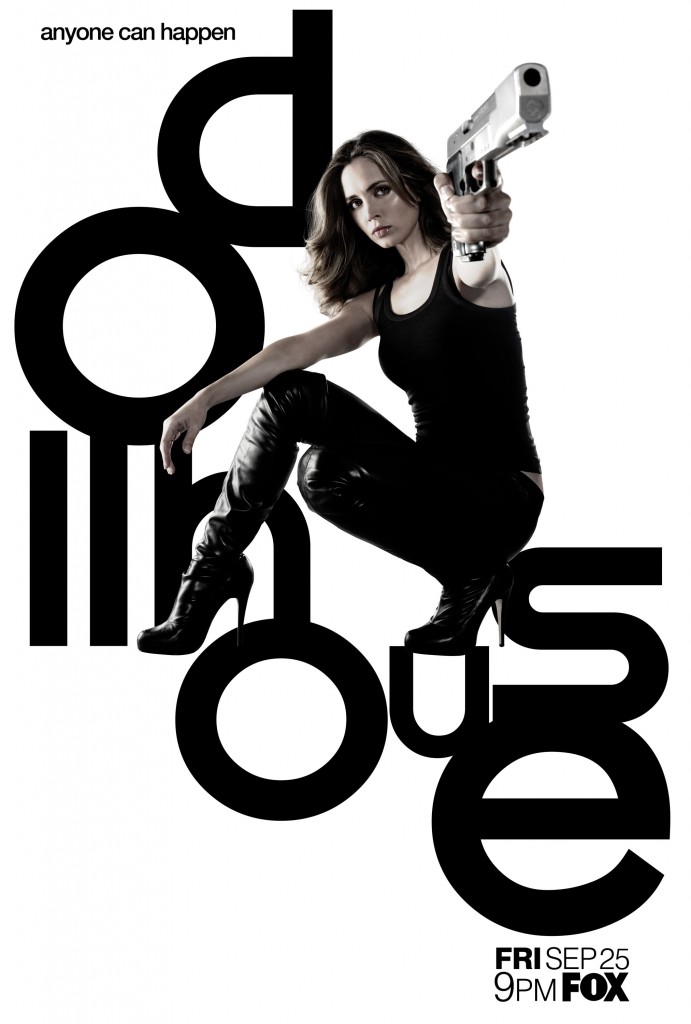
Let’s talk about how much I love this crazy promo image, which evokes Jim Steranko comic art for me.
I have a vendetta against television.
It stems from my pre-adolescent years. I had such a television schedule – every night a list of can’t-miss shows. I remember once, for a social studies class, we had to furnish a full schedule of our television viewing habits. Mine was absurd – 6:30 to 12:30 on some nights.
Eventually the internet and guitar supplanted all but Buffy and X-Files, and I’ve never gone back to appointment television since the pair went off the air. In fact, we don’t even have broadcast teevee in our house – a fact oft-lamented by co-workers and friends.
(Frankly, I think that makes people look a little… uh… unintellectual. Just putting that out there. Can you really not live without cable and the evening news?)
The thing about television is it doesn’t keep its promises. You might go all in for a show that starts really strong. Well, like a first album from a new artist, those show creators had their whole freaking lives to dream up that strong start. What’s the season finale going to be like? Season two? Season nine?
Point being, if the latter years of a show are going to suck, why bother investing at the start? That’s my new philosophy – I want to see a proven track record of excellence at least three seasons deep before I’ll deign to sample something. Otherwise, you just get burnt (Heroes) when a series can’t stick (Glee) the landing (Battlestar), or meanders on too long (ER).

Eliza Dushku is much more watchable in the second season, partially because she doesn’t have to carry entire episodes on her shoulders, but also because Sierra (Dichen Lachman) and, especially, Victor (Enver Gjokaj) are doing some extraordinary supporting work.
I watched the first season of Dollhouse on Hulu and found it mostly inert despite a thrilling concept and solid supporting cast. With that in mind, and with Joss Whedon’s accumulated good will in full effect, recently E and I watched the first three episodes of Dollhouse Season Two on Netflix streaming.
They sucked. They were stultifyingly bad and, since Dollhouse had relatively little good faith from me to begin with, I wrote the series off as dead (putting a dent into Joss’s good will).
Thankfully, this weekend E cajoled me into watching the fourth episode and… well… WOW.
Dollhouse went from borderline-embarrassing to an insane five-episode sprint into total must-watch madness of genre-bending plots, double-crossing paranoia, and restructuring the entire concept of the show – answering the unsettling promise of the season one “Epitaph” DVD-only episode.
The show finally gets around to asking the question underlying its premise: if you can change the architecture of the mind, what’s stopping you from bending the entire world to your whim? And, what happens when dissension in the ranks leads to two different whims? Would anyone be able to call their mind their own?
Admittedly, after the five stellar episodes it took a brief break and then pushed through a rushed two-part finale. But that quintet, plus the heart-rending epilogue, are some of the strongest television I’ve selectively watched in the past few years. The supporting cast is scorching and Eliza Dushku, freed from carrying the show on her own, is much more compelling than in the first season.
If you gave up on Dollhouse after the first season, please nab the final disc of season one and then take a chance on season two.
Interesting article; I may finally have to finish Dollhouse Season 2. (I gave up on it around the same point as you)
You’ve only just begun to lay out everything that makes television THE. MOST. FRUSTRATING. MEDIUM. EVER. Frustrating int hat it carries the most potential for greatness, as well as the most limitations.
Recommending TV in itself has become a frustrating exercise. I recently got into a discussion with a friend regarding the show Fringe. As of this moment, I feel that it is one of the 4 or 5 best shows on TV at the moment; everything from the middle of season 2 onward has been stellar, and if the finish to season 3 is as strong as the start, we’re looking at a show on the level of Buffy or The X-Files at their prime.
My friend, however, said that he was giving up midway through the first season; he found the case-of-the-week episodes weak and the acting inconsistent. I told him it was unconscionable to pass judgement on the show at that point, and that those flaws are nonexistent in its current form. It would be like writing off Buffy because “I Robot, You Jane” is complete ass.
But at the same time, I could see his point. TV is such a time-consuming medium, and as you’ve pointed out, one where even the brightest stars lose their luster. Life is short; why spend a good chunk of time sticking with something you don’t really enjoy just because it may (or may not) get better?
Your Fringe v. Buffy example is the perfect example to me of my problem with television.
Buffy and X-Files both had weak, meandering 1st seasons with moments of brilliance. It definitely wouldn’t have been fair to drop them early, but TV was different then – a show could find its feet in a first season and prove itself in 2 and 3.
That’s not the case anymore – serialized shows with big creators start strong and taper off (Supernatural being the extremely notable exception). Plus, JJ and friends have proven themselves unable to carry a serialized show satisfactorily across the finish line. When you build an entire show on overarching conspiracy you have to stick the landing.
As a result, I refuse to watch Fringe until it’s over – because I don’t want to be like your friend, but I also don’t want to give a show the benefit of my weekly anticipation and chatter if it’s just going to squander that good will with a shitty (or, worse, unfulfilled) ending.
An understandable point. I have a theory that no series should ever get more than 5 or 6 seasons, max. If showrunners had a clear idea of the timeframe they’re working with, we’d likely see more streamlined storytelling and less indulgent wheel-spinning. (This is also why I’d be a terrible network exec)
Fringe was recently moved to Fox Friday Nights (i.e. Where Sci-Fi Goes to Die). It has been on the bubble for two seasons now. If anything, the Threat of Cancellation has been a blessing; instead of trying to attract new viewers with more standalone episodes, the team has thrown caution to the wind and decided to move full steam ahead with the overall narrative. They need to put their best ideas forward now, because there isn’t much of a future ahead. (see also Arrested Development)
I personally always use the Wire as my model of great TV storytelling- 5 seasons, a perfectly realized universe of characters, and ended exactly when it needed to. It’s one of the only shows I can think of that deserves mention with the great American novels. Out of curiosity, peter, what would you say is the most thoroughly satisfying TV series you can think of? One that you think other serialized shows could stand to learn from?
I still need to find time to watch the Wire.
I agree, shows should start with limited runs in mind. I don’t see why this would be so bad for business, as the chance of a show lasting productively past five is so slim anyway. It seems like it would be more effective to greenlight some weaker-but-popular shows knowing they had a set 2-4yr lifespan.
To me the serialized standard is clearly Buffy, over X-Files. Buffy had plenty of-the-week happenings, but always ran a longer arc, and every season ended as if it was a series finale. However, Joss also had a general long-term plan that was flexible enough to add or subtract characters and budget. By contrast, X-Files never really had a long term plan, and finales tended to be heavy cliffhangers – fun for dedicated viewers, daunting for new ones.
I’m not saying shows can’t bring plot and mystery from one season to the next, but it can’t hurt to write every run as if it’s the REAL END.
What’s interesting is that I really saw Dollhouse as Joss’s response to that, but the acting/writing was too marginal at the top of each season to do anything about it.
that DOES look like Steranko work !
SCORE ! HUZZAH ! WELL DONE !